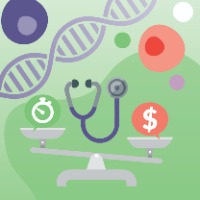Modelling late-onset diseases with induced pluripotent stem cells: a matter of time management
Cell & Gene Therapy Insights 2021; 7(1), 51–62
10.18609/cgti.2021.015
The advent of induced pluripotent stem cells (iPSC) has revolutionized in vitro modelling of many intractable human diseases. By deriving iPSC from individuals with progressive disease, it has been possible to capture disease-associated genes and study their impact on the downstream function of terminally-differentiated cell types. Nevertheless, late onset diseases pose particular challenges for disease modelling given the protracted time frame over which they normally develop. Such practical issues are accentuated by the propensity for iPSC to produce cell types of fetal origin rather than their adult counterparts and by the rejuvenation of the resulting cells, thereby erasing any physiological evidence of aging. Here we review progress in overcoming these issues and argue that achieving a combination of maturation and aging will enable better recapitulation of all features of late-onset diseases.
